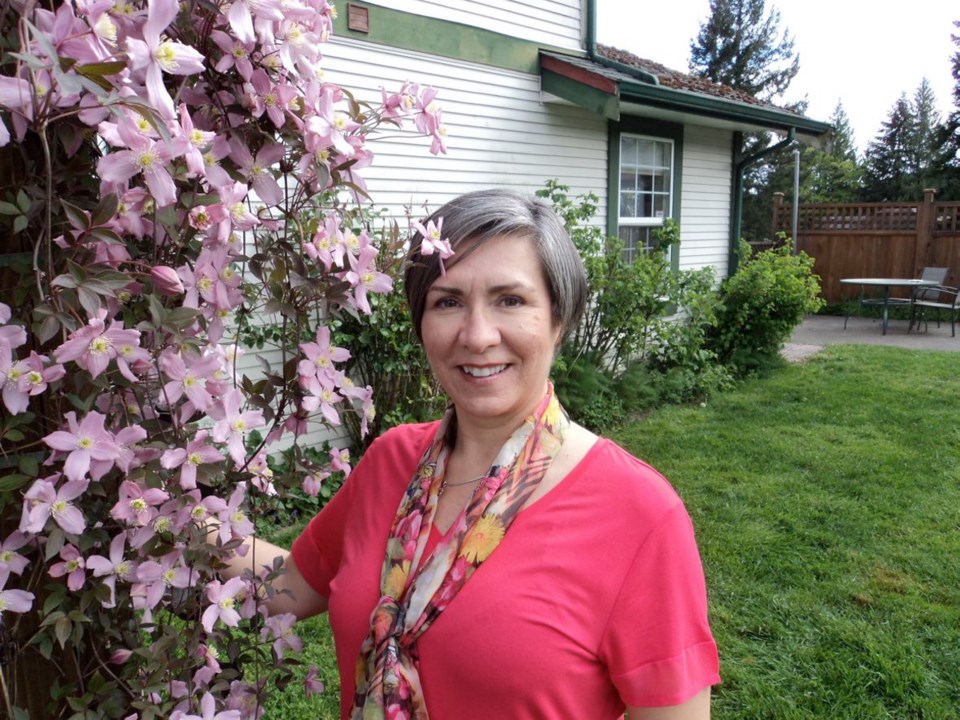Cancer survivor Chiquita Hessels has fought the disease and watched it kill relatives, and says knowledge is the best weapon to have in the fight.
“Information is always very powerful in my mind,” Hessels said. “Once you have the right information and the knowledge, the mind and the body can do what needs to be done to move forward.”
So, when the 51-year-old Nanaimo woman was offered in January a chance to take part in a screening test looking for certain genes associated with a risk for 14 common cancers, she agreed.
It didn’t matter that the certified reflexologist had already undergone a double mastectomy for breast cancer. It also didn’t matter that her own mother had died of breast cancer and a beloved aunt had died of bowel cancer.
Hessels said it offered her a chance to learn more specific information that could be helpful to her and, more importantly, her own children.
She has two teenaged boys, and while they are unlikely to get breast cancer, they might later pass along the gene to daughters of their own or be susceptible to other cancers.
“I was always trying to ferret out new treatments and information for my clients or my family,” she said.
“I’ve always tried to find information to help in whatever the circumstances.”
Hessels was one of the first to undergo a new genetic screening process performed at the provincial Lower Mainland Pathology and Laboratory Medicine Clinic.
The test looks for mutations in 14 different genes that are associated with a variety of common cancers.
The new test, made possible with a $400,000 investment by Genome B.C. and the Provincial Health Services Authority, will allow doctors to check for the genetic indicators in a fraction of the time.
Dr. Gillian Mitchell, oncologist and medical director of the hereditary-cancer program at the B.C. Cancer Agency, said the new test is also cheaper.
Mitchell said hereditary genetics accounts for five to 10 per cent of breast cancer, five to 10 per cent of bowel cancer and 20 per cent of ovarian cancer.
Mitchell said that giving patients advance knowledge of any genetic predisposition to these common cancers means they can take action themselves.
These patients can go for screenings more frequently to catch any cancer early on. For example, a patient with a genetic predisposition for bowel cancer might be inclined to go for more frequent colonoscopies.
The movie actor Angelina Jolie, for example, tested positive for hereditary breast cancer and chose to undergo a double mastectomy.
Patients can also get their families tested to see if they have the same hereditary genetics.
“If they have got the same genetic mutation, that means they are at risk of getting cancer even if they haven’t got it yet,” said Mitchell.
“So they can do things to either help prevent that cancer from happening at all or they can try to pick it up early so they have a better chance of a cure,” she said.
If patients are already diagnosed with cancer, they and their treating doctors can also use the information to fine-tune the treatment. Some drugs or some treatments might be better or not recommended at all.
With Hessels, the test confirmed the correctness of decisions she had made based entirely on what her body seemed to be telling her and against the advice of her oncologist.
She said after her mastectomy, doctors advised her to proceed to chemotherapy and radiation therapy. Hessels said she assented to the chemotherapy, but couldn’t bring herself to agree to radiation.
“It was like every cell in my body refused the radiation,” Hessels said.
“I just couldn’t, my body wouldn’t let me.”
When the genetic screening test results came in, she did not test positive for the genetic predisposition for breast cancer. She did, however, test positive for a genetic condition known as Li Fraumeni syndrome.
This condition leaves a patient’s body less capable of suppressing the growth of cancerous tumours and cells.
Most important for Hessels, at the top of the list of advisories for anybody with the Li Fraumeni genetic mutation is to avoid radiation therapy.
The risk is too great the radiation will trigger other, secondary cancers.
“So the reality was that my decision not to have gone through with the radiation was the best decision,” she said.
“That information helped me move forward with the recognition that, ‘OK, I’m on the right path.’ ”



